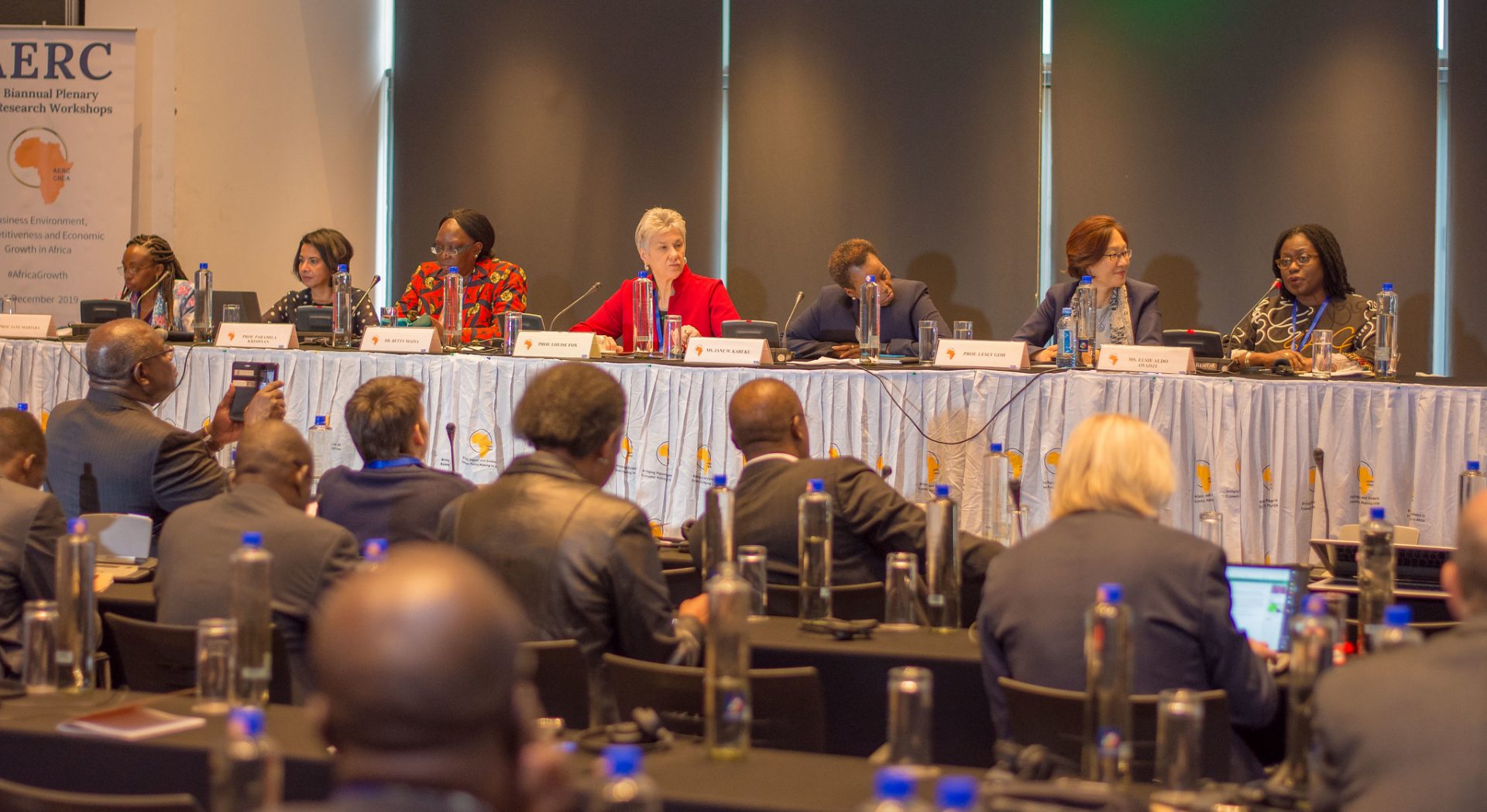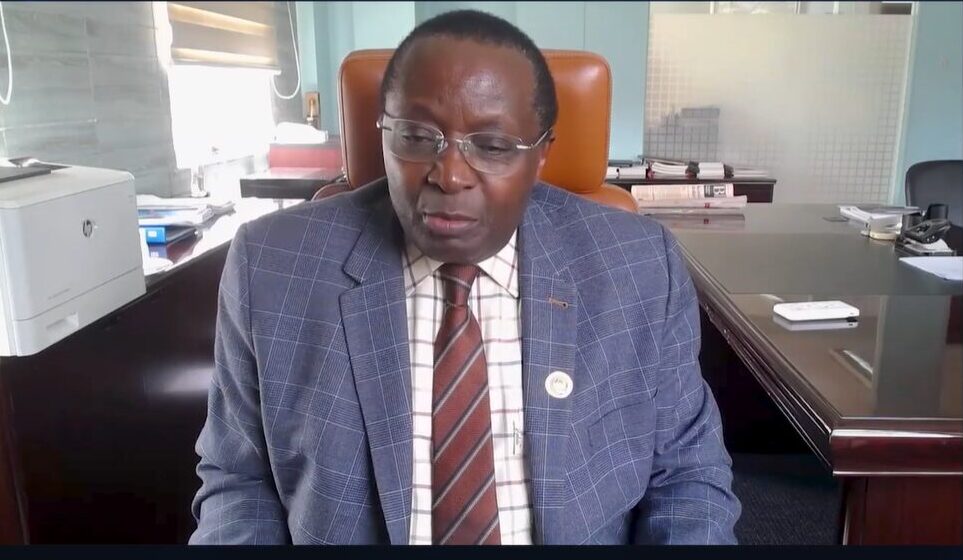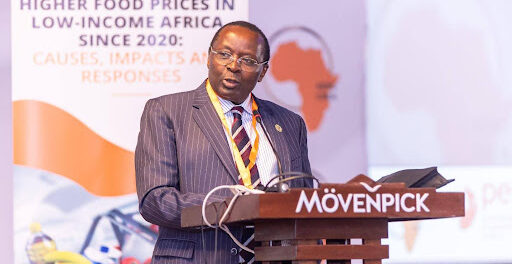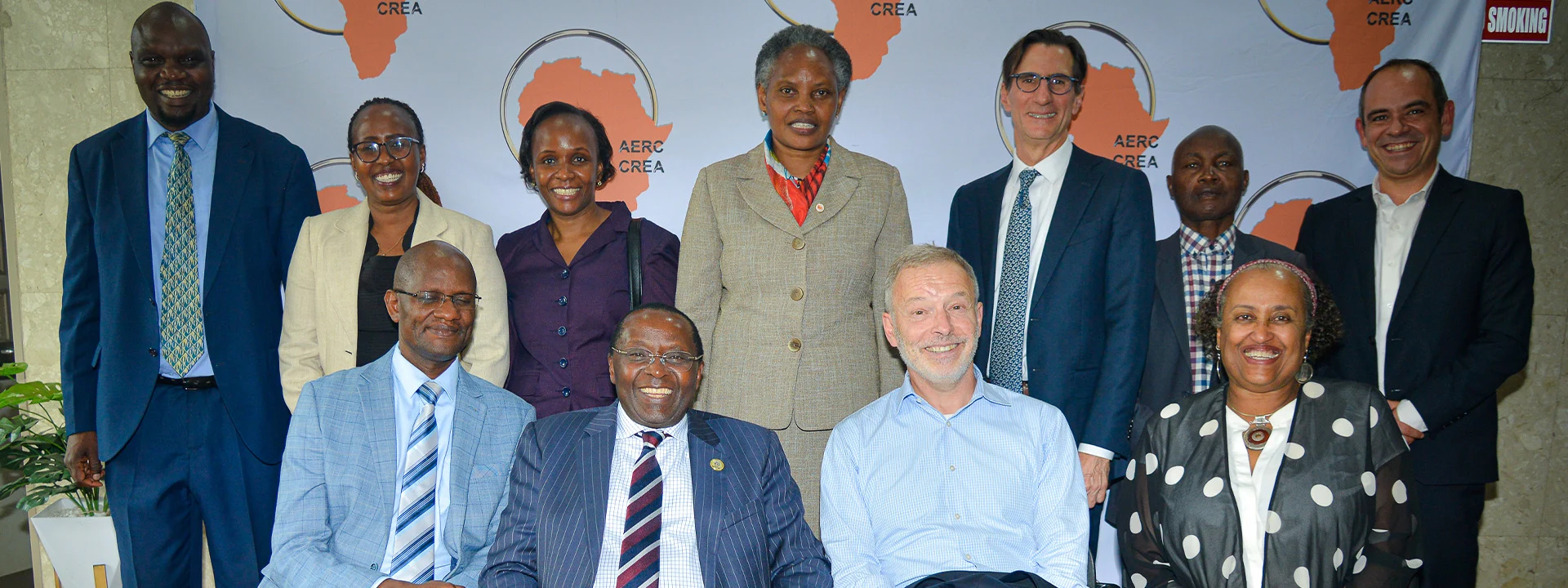

African Senior Policymakers Challenged to Prioritise Climate Change in Development Blueprints
April 1, 2022African policymakers have been challenged to prioritise the impact of climate change when designing economic development blueprints. The announcement was made by Kenya’s Cabinet Secretary Ministry of Agriculture, Livestock, Fisheries and Cooperatives Hon. Peter Munya during the 24th Annual African Economic Research Consortium’s (AERC) Senior Policy Seminar.
While speaking on behalf of Hon Munya, Kenya’s Chief Administrative Secretary (Assistant Minister) Ministry of Agriculture, Livestock, & Fisheries Mr. Lawrence Omuhaka said climate change has produced a domino effect and to power Africa’s economic growth and prevent the worst consequences of climate change, researchers must spell out a proactive stance for African policy makers on managing climate change.
“Climate change represents a major threat to Africa achieving the Sustainable Development Goals. It is important to keep in mind that nearly all the impacts of climate change are exacerbated by inappropriate policy choices,” Hon Munya said.
“Our very survival is linked to climate change as our food security rests on agricultural systems that still rely largely on low inputs, traditional tools, and the promise of rain – and are subject to the vagaries of drought and flooding.”
Similar sentiments were echoed by Hon. Mthuli Ncube, Minister of Finance and Economic Development, Zimbabwe.
“Climate change has a growing impact on the continent, hitting the most vulnerable hardest, and contributing to food insecurity, low crop yields and production, droughts and erratic weather patterns. There’s a need for the continent to commit to enhancing climate action and building resilience,” Hon. Ncube said.
Themed “Climate Change and Economic Development in Africa”, the forum cast the spotlight on policy proposals that can be adopted to shape Africa’s response to climate change.
“Climate change has adverse implications for Africa’s development, from health systems to agriculture, ecosystems, water resources, energy resources and physical infrastructure and threatens the achievement of the Sustainable Development Goals (SDGs). Thus, there is a need for African governments to scale up the availability, access, and affordability of digital agricultural technologies, which are the key drivers of climate-smart agriculture interventions. And for Africa to become a major player, it needs to urgently address the issues of lack of capacity and poor institutions,” AERC Executive Director Prof. Njuguna Ndung’u said.
Africa faces exponential collateral damage, posing systemic threats to its economies, infrastructure investments, water and food systems, public health, agriculture, and livelihoods, threatening to reverse its modest development gains and slip into deeper levels of extreme poverty.
“Climate risk can be turned into an opportunity by leveraging climate-smart agriculture (CSA) innovations. Africa needs to urgently address the issues of lack of capacity and poor institutions,” said Prof. Asafu-Adjaye of the African Center for Economic Transformation & School of Economics at the University of Queensland, Australia.
On her part, Dr. Adelaide Retselisitsoe Matlanyane, Former Governor, Central Bank of Lesotho said: “Despite having contributed the least to global warming and having the lowest emissions, Africa will bear the brunt of climate change.”
This year’s seminar will assist policymakers and other actors to better understand the impact of climate change on economic development, particularly focusing on policies that will build and strengthen the resilience of sub-Saharan African economies to ensure the sustainability of growth and development.
The overarching goal of this year’s seminar is to improve Africa’s readiness to confront climate and environmental shocks and leverage the opportunities they present through climate-smart sets of economic policies. \
To enhance mitigation and adaptation to climate change, African governments must make major structural investment and policy decisions that will influence the rate, structure and character of economic growth and development for the long term. This is especially so given most infrastructure investments’ path-dependence and lock-in nature.
The AERC Senior Policy Seminar is an annual forum convened to provide high level African policy makers the opportunity to come together to learn about the results of AERC research, exchange policy experiences with each other and interact with AERC researchers in an atmosphere of peers. But above, adopt policy propositions that enrich economic management choices and designs applicable in their respective countries.
About the African Economic Research Consortium (AERC)
Established in 1988, African Economic Research Consortium is a premier capacity building institution in the advancement of research and training to inform economic policies in sub-Saharan Africa. AERC’s mission rests on two premises: first, that development is more likely to occur where there is sustained sound management of the economy; second, that such management is more likely to happen where there is an active, well-informed cohort of locally-based professional economists to conduct policy-relevant research. AERC builds that cohort through a programme that has three primary components: research, training, and policy outreach. The organization integrates high-quality economic policy research, postgraduate training, and policy outreach within a vast network of researchers, universities, and policy makers across Africa and beyond. Learn more at www.aercafrica.org, and follow us for the latest updates.
For media inquiry, contact
Mr. Senvy Maistry
Mobile: +254 (0) 700 691 503
Email: senvy.maistry@aercafrica.org
Mr. Charles Owino
Mobile: +254 (0) 721 382 777
Email: charles.owino@aercafrica.org







